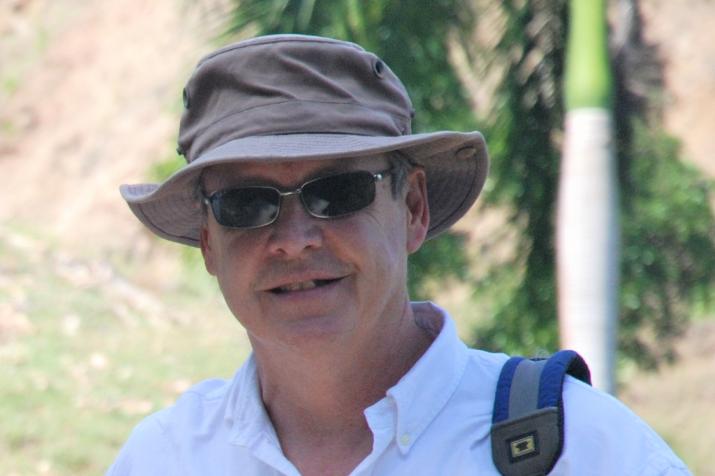
Ralph Corey, executive director of Duke's Hubert-Yeargan Center for Global Health, has announced his retirement. Corey is pictured above in Haiti. (Photo courtesy of Ralph Corey)
Published June 30, 2020, last updated on July 23, 2020 under Around DGHI
Ralph Corey, founding and executive director of the Hubert-Yeargan Center for Global Health (HYC), has announced his retirement from day-to-day management of the center, effective June 30, 2020. Christopher Woods, who has served with Corey as co-director of the center since its launch in 2004, will become HYC's executive director.
As executive director, Corey led the development of innovative global health training within graduate medical education programs. He helped create the Global Health Pathway for Residents and Fellows, which provides opportunities for medical trainees to conduct global health research while pursuing a Master of Science in Global Health degree through the Duke Global Health Institute (DGHI).
Corey, the Gary Hock Professor of Global Health at Duke, established a robust cardiovascular service in Western Kenya, including a 10-bed cardiac care unit and a Kenyan-led Cardiovascular Fellowship Training Program. Under Corey’s leadership, the HYC has also helped build research and health systems capacity in other global locations, including Sri Lanka and Tanzania.
“Dr. Corey has been a powerhouse in support of global health education for postgraduate medical education trainees for decades, long before it acquired broad appeal,” says Woods.
He notes that since 1985, Corey has mentored and supported more than 450 clinical trainees in 20 global locations and hosted approximately 200 international trainees at Duke.
In addition to serving as HYC’s co-director, Woods, a professor of medicine and global health, is former director of DGHI’s Master of Science in Global Health program and he led the infectious diseases division of the Durham VA Medical Center. He says HYC will continue its global research and training, but will also explore opportunities to become more involved in addressing health disparities in the Durham community.
“The health disparities highlighted by the epidemic, combined with the social unrest raging in the wake of ongoing disregard for black life and other forms of systemic racism, heighten a need for additional engagement in our own community,” Woods says.

